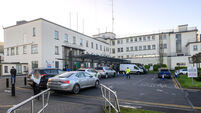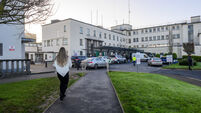HSE admits planning difficulties due to covid-19, war in Ukraine, and recruitment issues

HSE CEO Bernard Gloster said: We will now have to ensure that this investment is giving the maximum benefit to the public. Picture: Sasko Lazarov/Photocall Ireland
The HSE has said planning health services for the rest of the year has been made very difficult a number of factors including the impact of covid-19, the war in Ukraine and a variety of recruitment challenges.
In its service plan for 2023, the health authority has sought to set out what practical changes patients should expect as the move from hospitals to community care continues.













